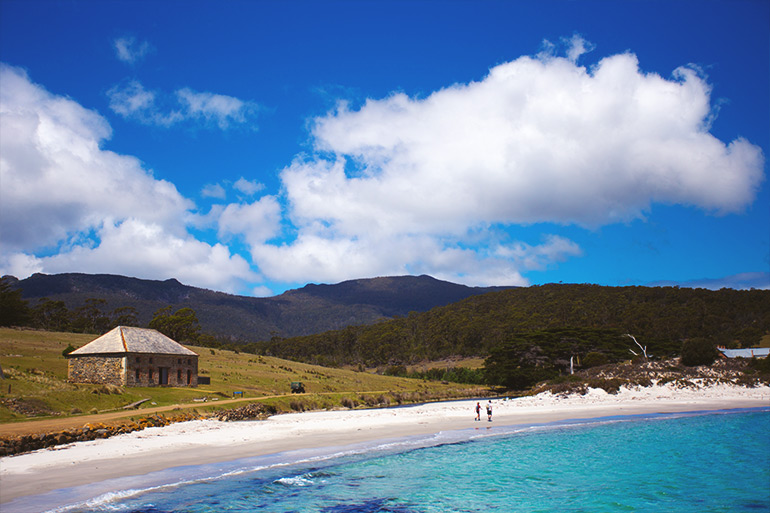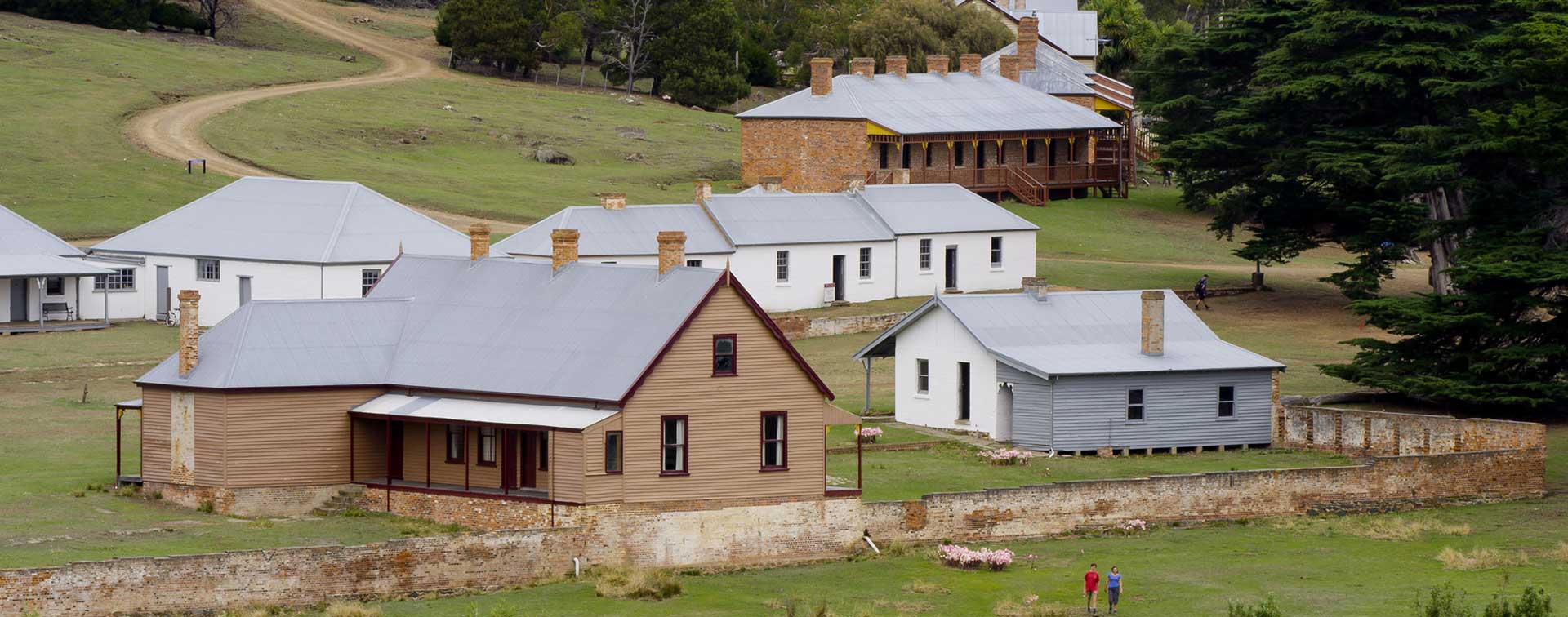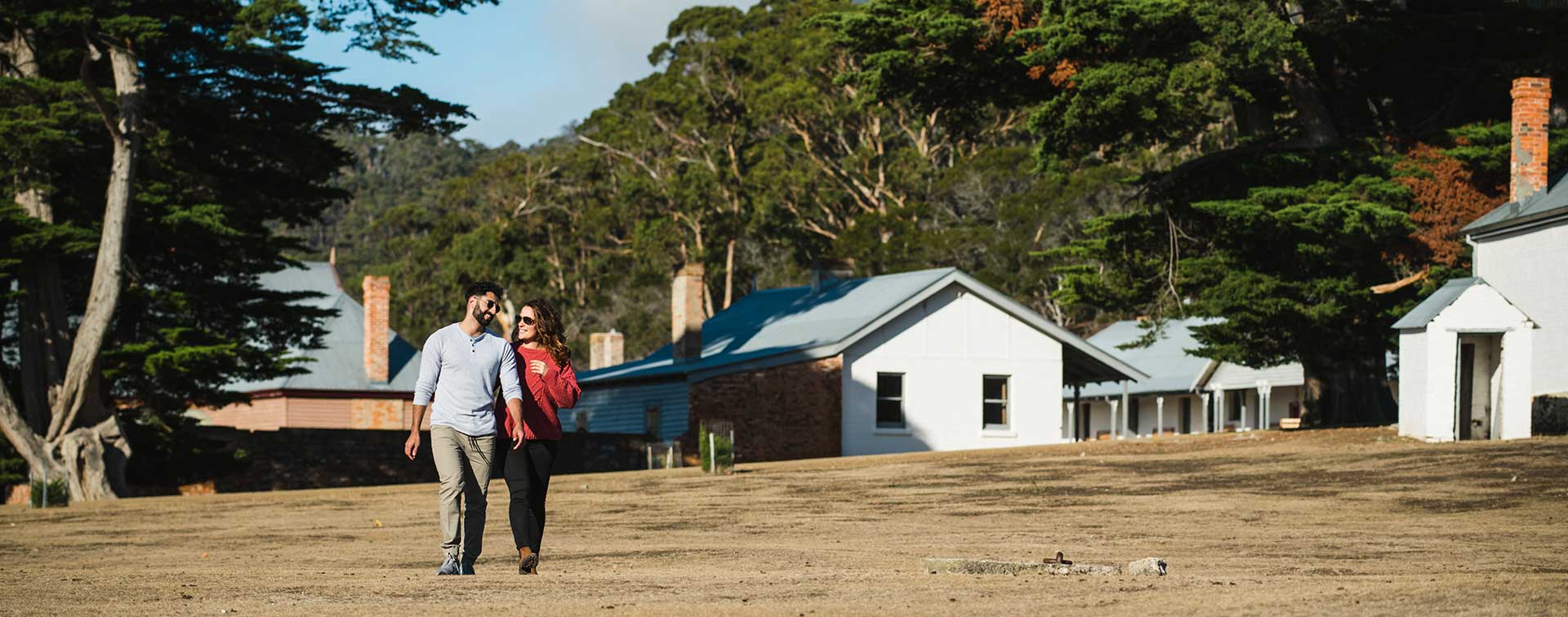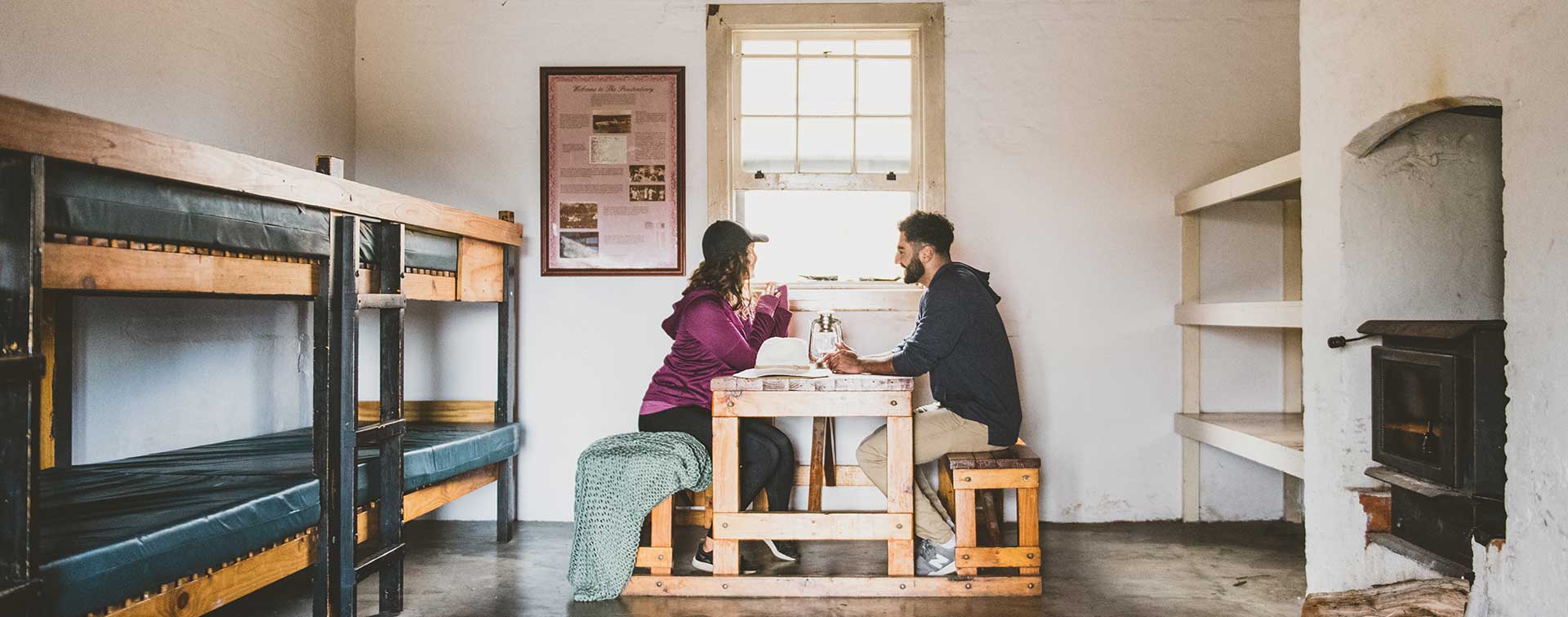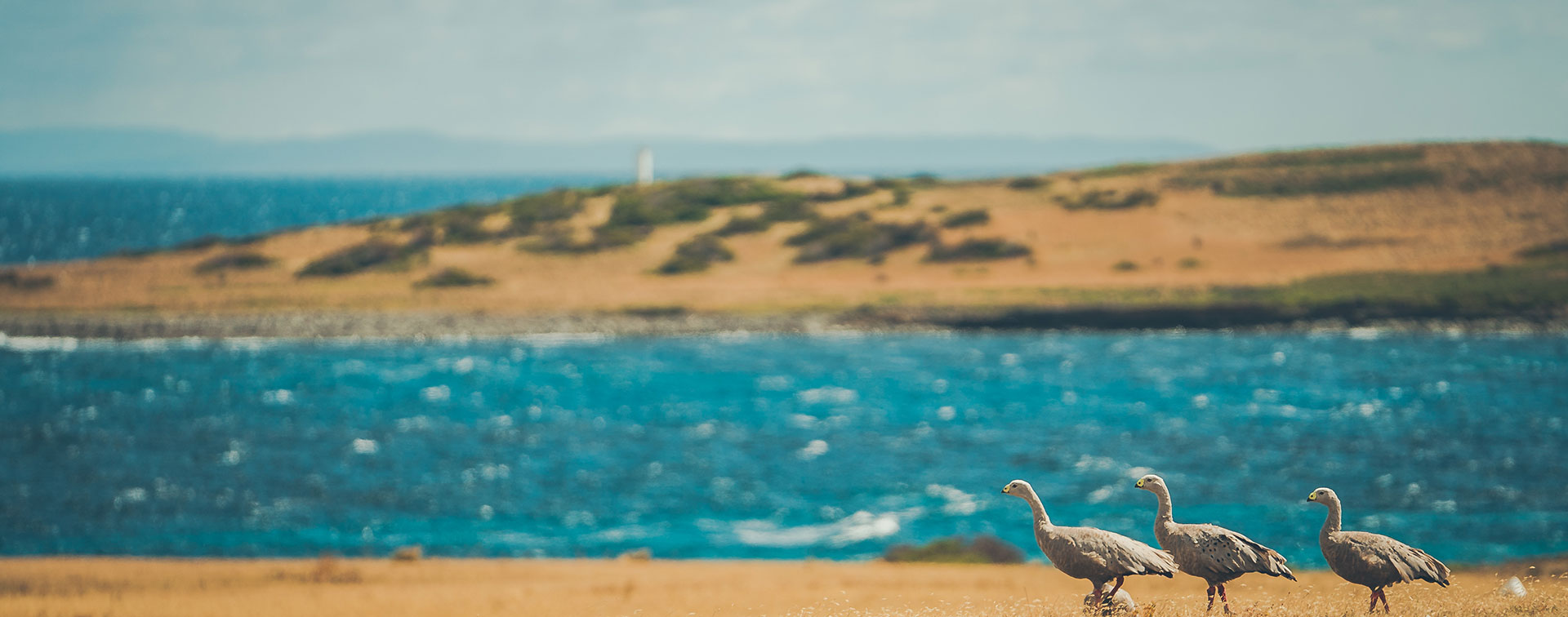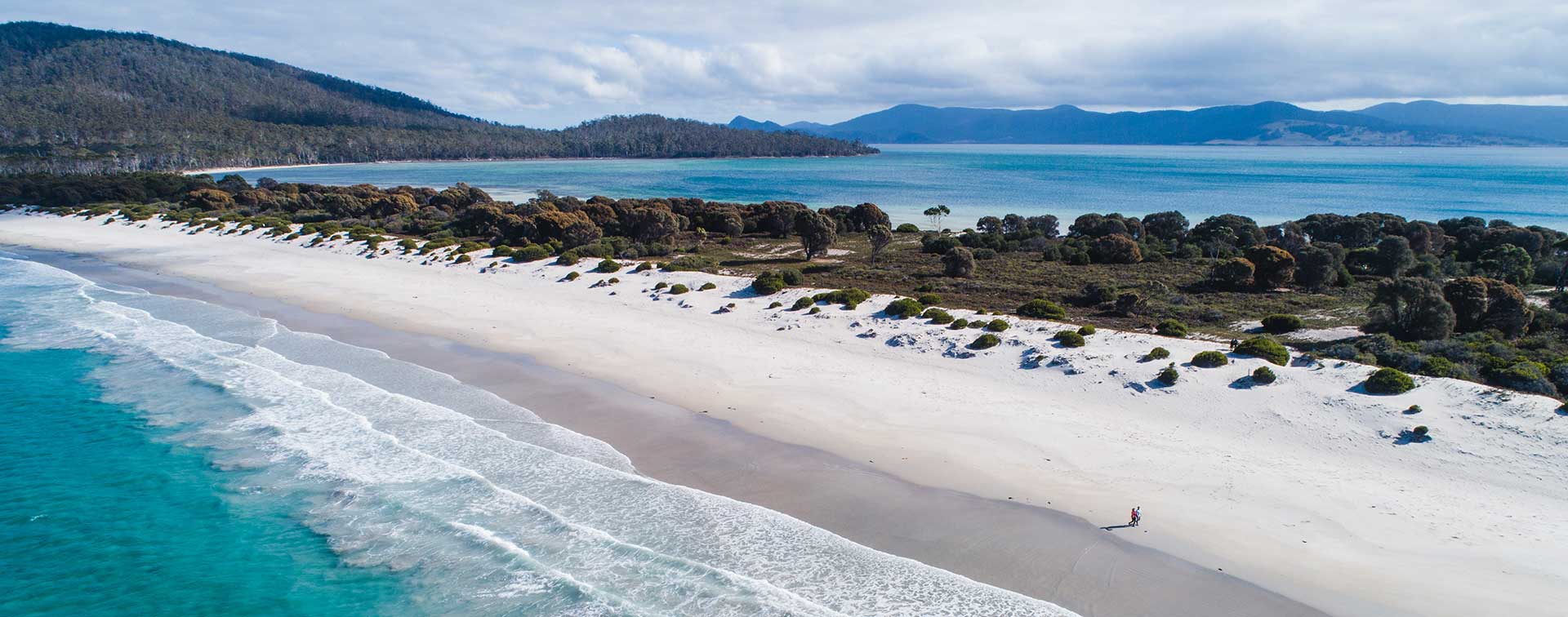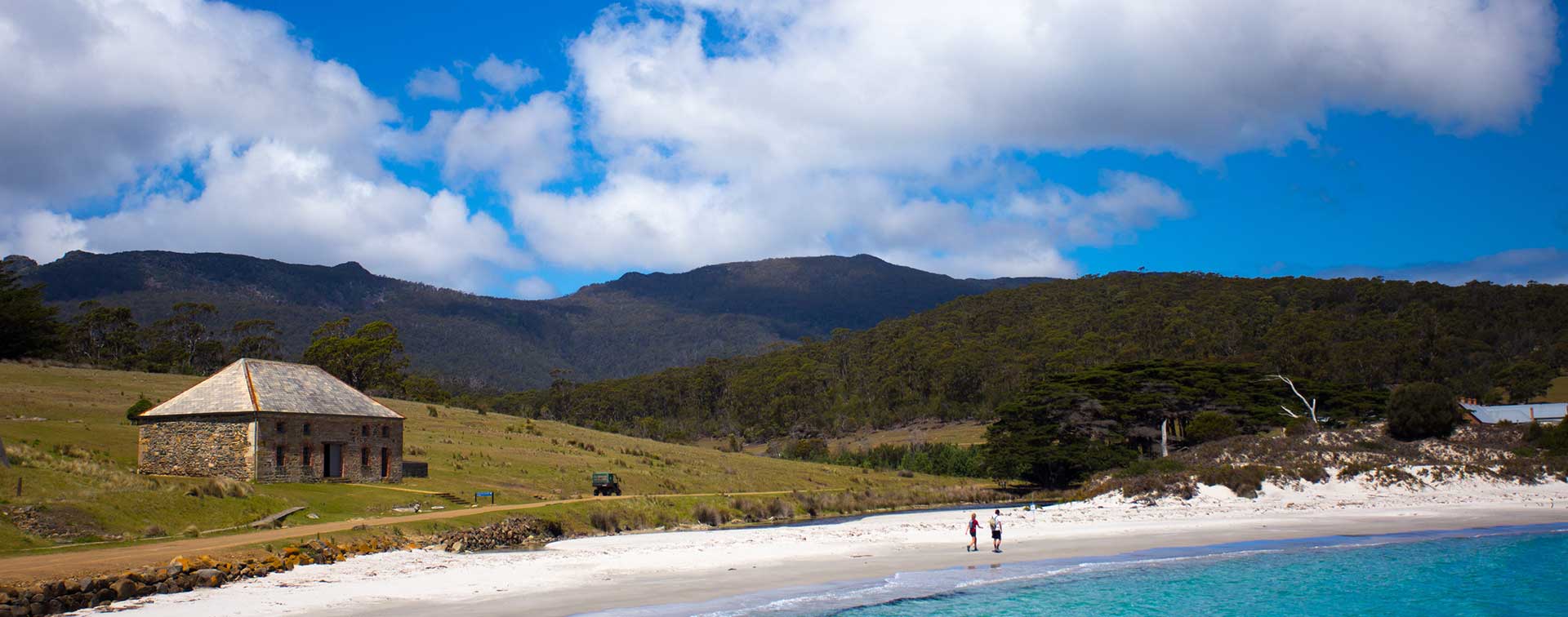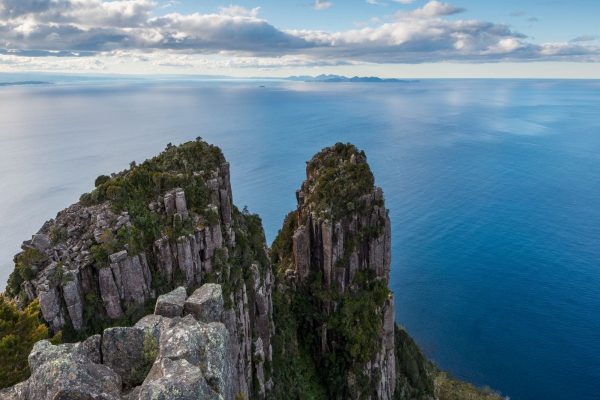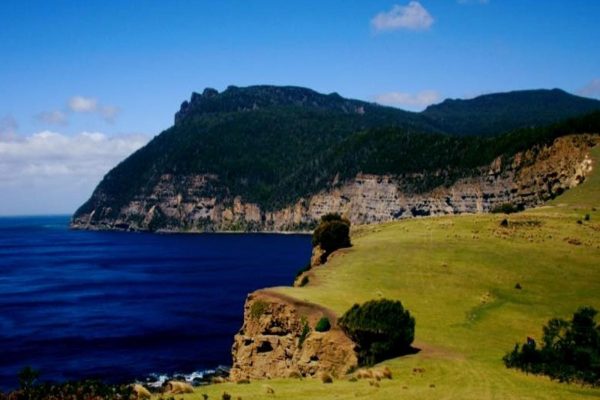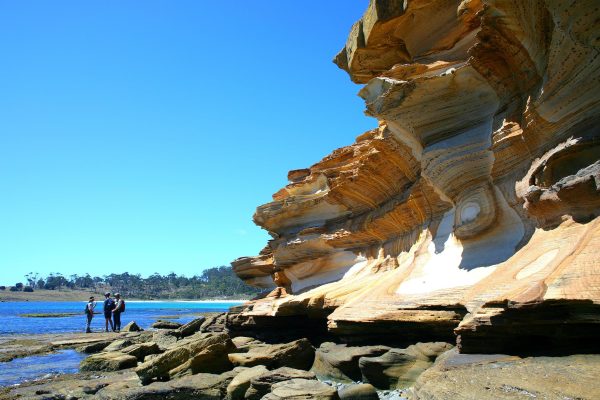Take the short boat journey from Triabunna and spend a day or longer exploring Maria Island. This is a place for wandering through historic ruins, taking coastal walks, ascending mountains, exploring from the saddle of a bike, encountering incredible wildlife or simply relaxing on a perfectly beautiful beach. During your visit, take time to explore Darlington Probation Station—part of the 11 Australian Convict Sites World Heritage Property—and other historic buildings and ruins, including the elegant Coffee Palace, old cement works and enigmatic remains of farm buildings.
You can bring your bike (or hire one) to tour the island on two wheels. Choose from a range of walks to see the convict reservoir, hop kilns, French’s farm, the Fossil Cliffs and the stunning Painted Cliffs. If you have time and feel like more of a challenge, take the walk to the summit of Bishop and Clerk or Mt Maria. For water-lovers, take a swim at one of Maria’s beautiful beaches. Or go snorkelling in the marine reserve, for experienced scuba divers, go a little deeper to explore the wreck of the Troy D. You’ll also encounter diverse wildlife here including Cape Barren Geese, Forester kangaroos and possibly even a member of the resident insurance population of Tasmanian devils. Camping is available on the island and basic accommodation is also available in the Penitentiary.
Read this article for everything you need to know about your Maria Island visit.
